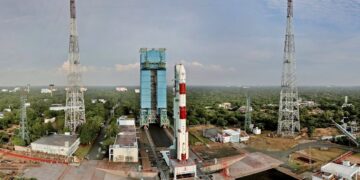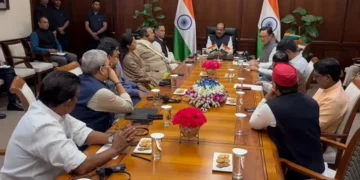The disruptions caused by the farmers’ Delhi Chalo call and the Haryana police, who are attempting to stop them from traveling to the National Capital, over the past two days have brought back memories of the difficult times they faced three years ago. The Punjab industry was severely impacted by the 13-month-long uproar against the farm laws.
Punjab’s industry is concerned about a replay of their 2020–21 agitation, which saw highways blocked and trains delayed, as hundreds of protesting farmers are making their way towards Delhi on their tractors and trucks, fully equipped for the long haul.
The 13-month-long protest against the farm laws severely damaged the state industry, and the recent disruptions resulting from the farmers’ Delhi Chalo call and the Haryana police’s attempt to prevent them from reaching the National Capital have brought back memories of the difficult times they went through three years ago. Industry organizations claim that the blockades on federal roads are beginning to hinder the flow of products and that a repeat of those demonstrations will be detrimental to the state’s enterprises and industry.

According to Upkar Singh Ahuja, president of the Chamber of Industrial and Commercial Undertaking (CICU), the industry is already beginning to feel the pressure. For example, we sell auto components to tractor, vehicle, and two-wheeler industries around the nation in the auto sector. They are no longer confident if their supply needs will be satisfied on schedule. We’ve already received inquiries,” he replied, sounding alarmist. Punjab is home to about 5,000 businesses that produce automotive parts.
ALSO READ:- Battles fought near the boundaries of Punjab and Haryana at Shambhu and Khanauri
The head of the Punjab chapter of the PHDCCI, RS Sachdeva, stated that the state’s industry was in a panic because of the potential consequences of farmers going into protest. He said that the detours caused by the road closures are causing the transfer of raw materials and completed items to take longer and cover greater distances. He warned that if the demonstrations continue, “the supply chain has started to get affected and productivity will also be hit very soon.” He urged the central government and farmers to have a discourse about the problem as soon as possible to prevent a recurrence of the previous uproar.

Amit Thapar, chairman of CII’s export task force for the northern area, stated that the decision to block rail tracks will only exacerbate the situation, particularly for Ludhiana’s industrial units. “This is awful news, but we were expecting it wouldn’t last long and wouldn’t interfere with the transit of products. Should these obstructions persist, the supply chain will experience disruption. Not a positive indicator for exports,” he remarked, expressing the industry’s general sentiment.
Customers are becoming more picky, according to Badish Jindal, head of the Federation of Punjab Small Industries Association (FOPSIA), and the cost of raw materials and transportation is starting to rise. Farmers in Punjab are leading the demonstration in support of their rights, but it shouldn’t harm the state’s business sector. We have informed SKM of this,” he stated.







































Your point of view caught my eye and was very interesting. Thanks. I have a question for you.